Cats can be very vocal, they use meowing (as well as trilling, purring and other vocalisations) as a way to communicate with us. According to ASPCA, adult cats do not actually meow at each other they only meow at humans. This is arguably because cats have realized they can get people to do what they want by meowing at them. So, what do they actually want?
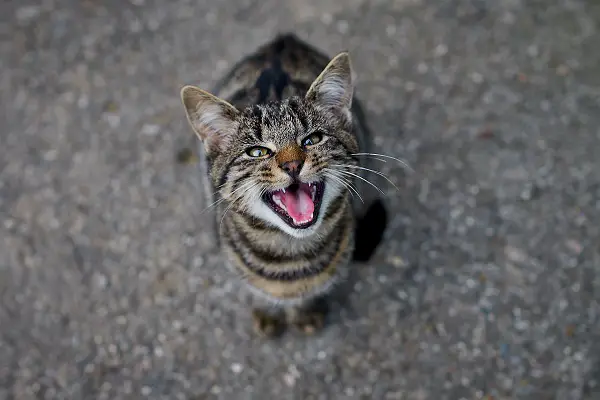
If you’re wondering “why does my cat keep meowing?” there are many potential reasons, they could just be saying hi or asking for food or they may be letting you know they are in pain. We have listed the most common reasons below to help you determine why your cat won’t stop staring at you and meowing:
Contents
1. Greeting You
Your cat could simply be saying hi. Many cats will meow when their owners come home or when they see people around the house.
If your cat meows when they see you or when you speak to them, they are probably just greeting you and saying “hello!”.
2. Letting You Know They are Hungry
Your cat may become more vocal around feeding time or when they see you in the kitchen, this is their way of asking you for some tasty cat food. However, it is important not to feed your cat when they meow at you.
Feeding your cat when they meow encourages them to meow more as they think they will get food.
Consider getting an automatic cat feeder to schedule their meals and stop this type of meowing.
This is because feeding your cat when they meow is positively reinforcing the behaviour. If you do this your cat will continue to meow at you every time they see you in the kitchen or every time they feel a little rumble in their tummy as they think that is how they get food from you.
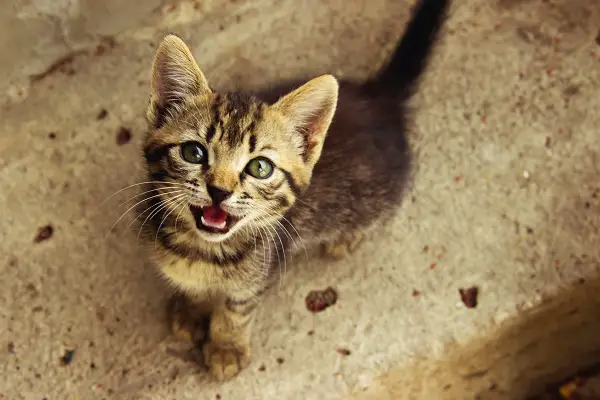
When your cat is quiet, give them the food. If your cat is very food orientated and keeps on meowing at you to try to persuade you to give them food and it is driving you mad, you could get an automatic cat feeder. Before long, your cat will direct the meows at the feeder instead of at you. The best thing to do is simply not reinforce the behaviour and your cat should stop when they figure out it doesn’t get them what they want.
3. Seeking Attention
Constant meowing may be your cat’s way of getting attention from you. If you respond to the meowing with play, petting or talking then you are reinforcing that meowing will get your attention. Instead, look away and give them attention when they are quiet.
Many cats do not like to be alone and crave attention so make sure you a spending quality time with your cat each day. If your cat spends a lot of time at home alone each day they will be more likely to meow at you wanting attention.
This also links in with loneliness and boredom, if your cat is spending a lot of time alone they will meow at you when you’re at home to let you know they missed you. If possible, consider having a pet sitter check on your cat during the day to give them some attention and break up the day a bit so it’s not such a large chunk of time your cat is spending alone.
4. Wants to Come in or Go Out
Cats quickly learn that they need to meow at you to tell you something and to get what they want. They will put this into practice at certain times for example if they would like to go outside or come inside. This is quite a common one as, if you do not have a microchip cat flap, your cat needs you to physically let them in and out. In this case, your cat will likely stand at the door and meow continuously until you show up to let them in or out.
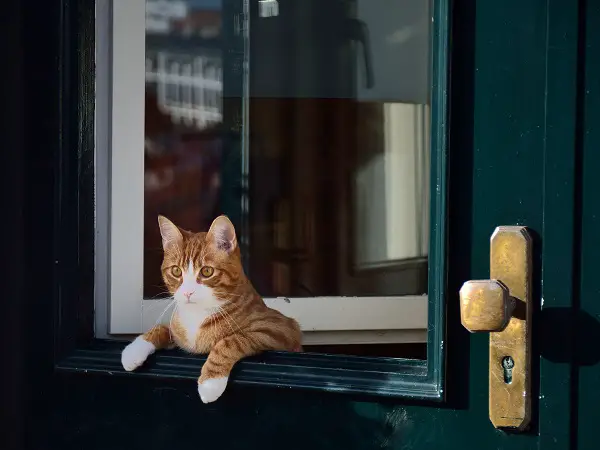
If you are trying to train your cat to be an inside cat or you give them limited time outside, you will probably be experiencing a lot of this meowing. Unfortunately, this is a big change and there is not a lot you can do about the meowing aside from waiting until they are quiet to open the door or give them attention.
5. Sickness or Pain
Cats don’t often show signs of pain but the meowing could be a sign that your cat is suffering from an illness or is in pain. It is important to get them checked over by a veterinarian to rule this out.
Take note if your cat is meowing more intensely when you go to pick them up or stroke them as this could be another indication of pain. Some illnesses can cause a cat to feel pain, hunger or thirst which can result in meowing excessively.
Important:
If you suspect your cat is meowing due to sickness, pain or ill health get them checked out by a vet immediately.
As an example, an overactive thyroid can result in excessive vocalisations. A number of diseases lead to cats feeling restless or irritable and this can prompt more vocalisation too. Older cats tend to be more prone to developing diseases too so keep a close eye on them.
6. Stress
Your cat may be stressed and is letting you know by meowing. Has something happened recently that may have upset or stressed your cat? This could be anything from moving house to redecorating or introducing a new family member into the home.
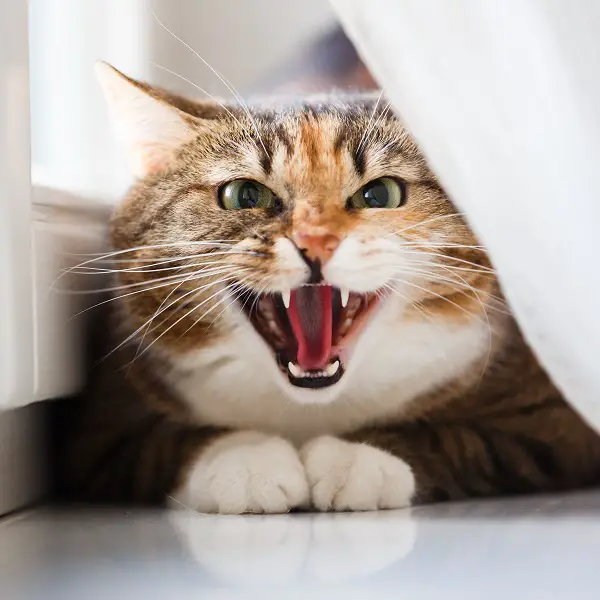
To help combat the increased stress and the increased vocalisations, spend quality time with your cat to let them know everything is okay.
7. Meowing to Find a Mate (If Not Spayed/ Neutered)
If your cat is constantly meowing it could be because they are looking for a mate. Female cats yowl when they are in heat and male cats yowl when they smell a nearby female is in heat.
This can cause a lot of noise in the house which could well be driving you crazy. This can be prevented by spaying or neutering your cat.
8. Older Cats May Meow More
Elderly cats can suffer from feline cognitive dysfunction, mental confusion and they may meow more due to disorientation. This seems to happen frequently at night too, a nightlight can help prevent this disorientation and a veterinarian may be able to help with the symptoms your elderly cat is experiencing.
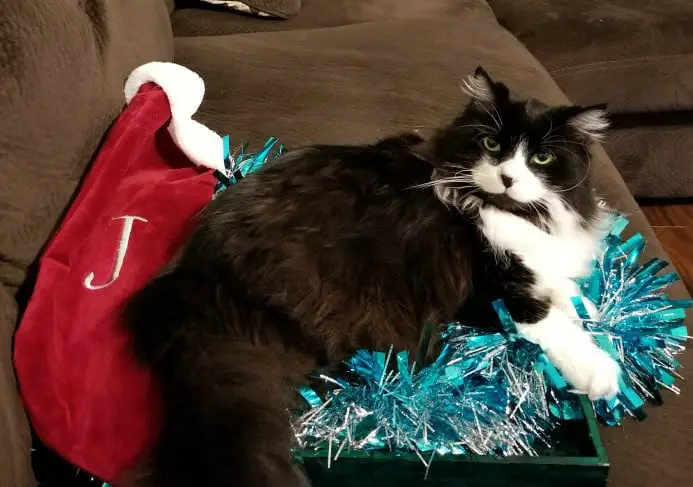
Older cats also tend to be more anxious and have increased irritability which can contribute to more vocalisation.
What to Do if Your Cat is Meowing Excessively
If you’re not sure what your cat is trying to tell you, take a look at the circumstances around the meowing and what makes the meowing stop.
Once you figure out what it is that makes your cat so vocal, give these a try to help improve things:
• Only give your cat attention/ food when they are quiet.
• If you think the meowing is linked to boredom/ loneliness consider getting a pet sitter to check up on your cat during the day or put a cat tree or bed near the window so your cat can watch the world go by from their perch. Another good idea is to put a bird feeder outside the window so your cat can watch the birds.
• Have your cat spayed or neutered if the meowing is linked to being in heat/ females being in heat.
• If your cat is elderly, take them to the vet for an evaluation. The vet may be able to prescribe medication to help with medical conditions associated with ageing.
What not to do:
• Do not shout at your cat for the constant meowing. Punishment will not help the situation and may cause your cat to become fearful of you.
• Don’t ignore the meowing – there is likely a reason your cat is meowing at you so make sure everything is okay and there is not an immediate problem your cat is trying to communicate to you e.g. they are trapped in a room or they can’t access the litter box.
Remember that your cat uses meowing as a way to communicate with you. The chances are that over time you will become familiar with the distinctive sound of certain meows and you’ll begin to know what they mean.
Your cat is not trying to annoy or upset you, they want to tell you something.
Figuring out what they want and not positively reinforcing the meowing is the first step to putting a stop to it.
We hope this helps solve the problem of excessive meowing.
As an Amazon Associate I may earn a small fee from qualifying purchases at no extra cost to you. This helps us run the site, so thanks for your support!

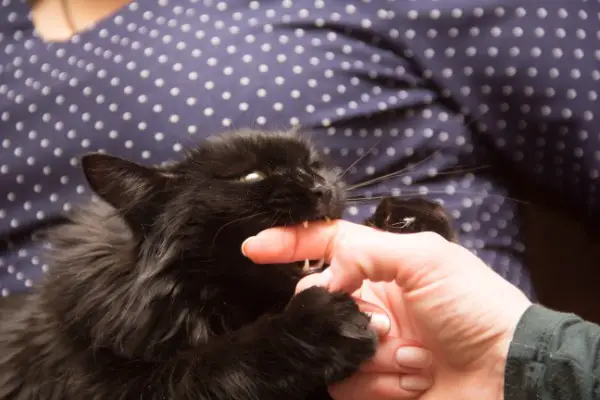
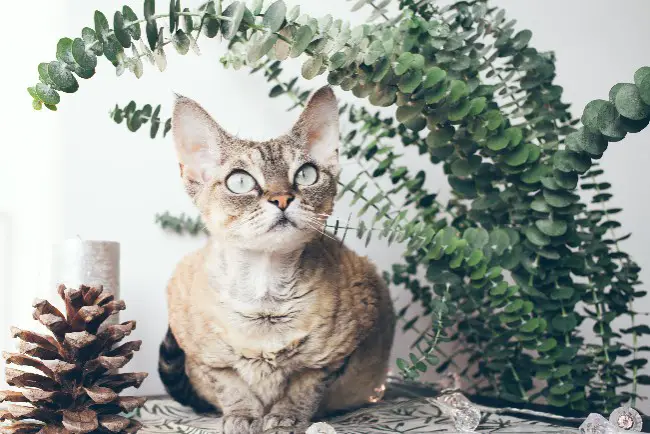
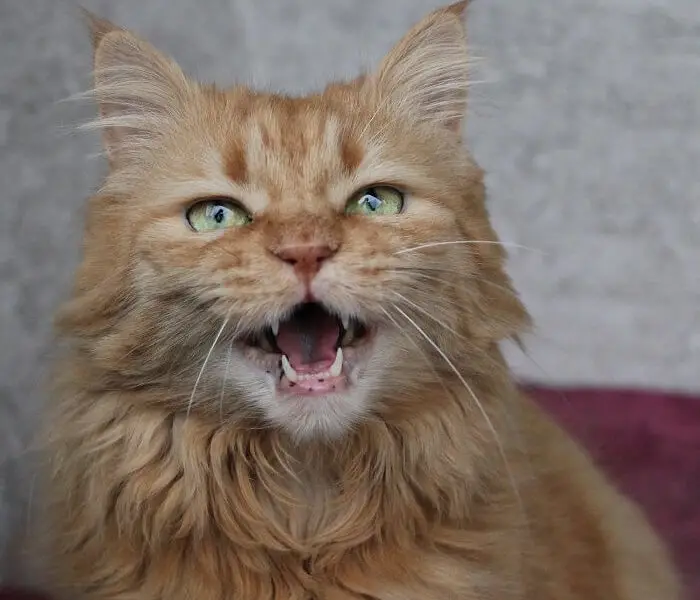
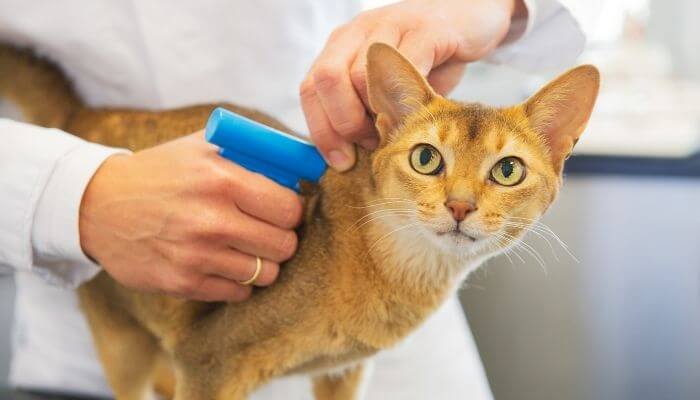
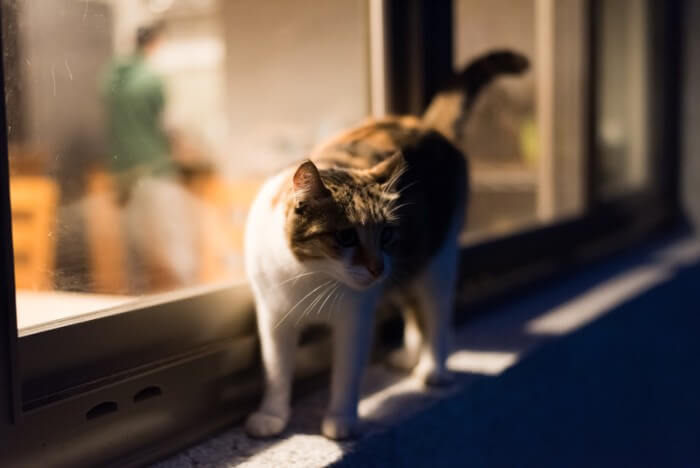
Leave a Comment